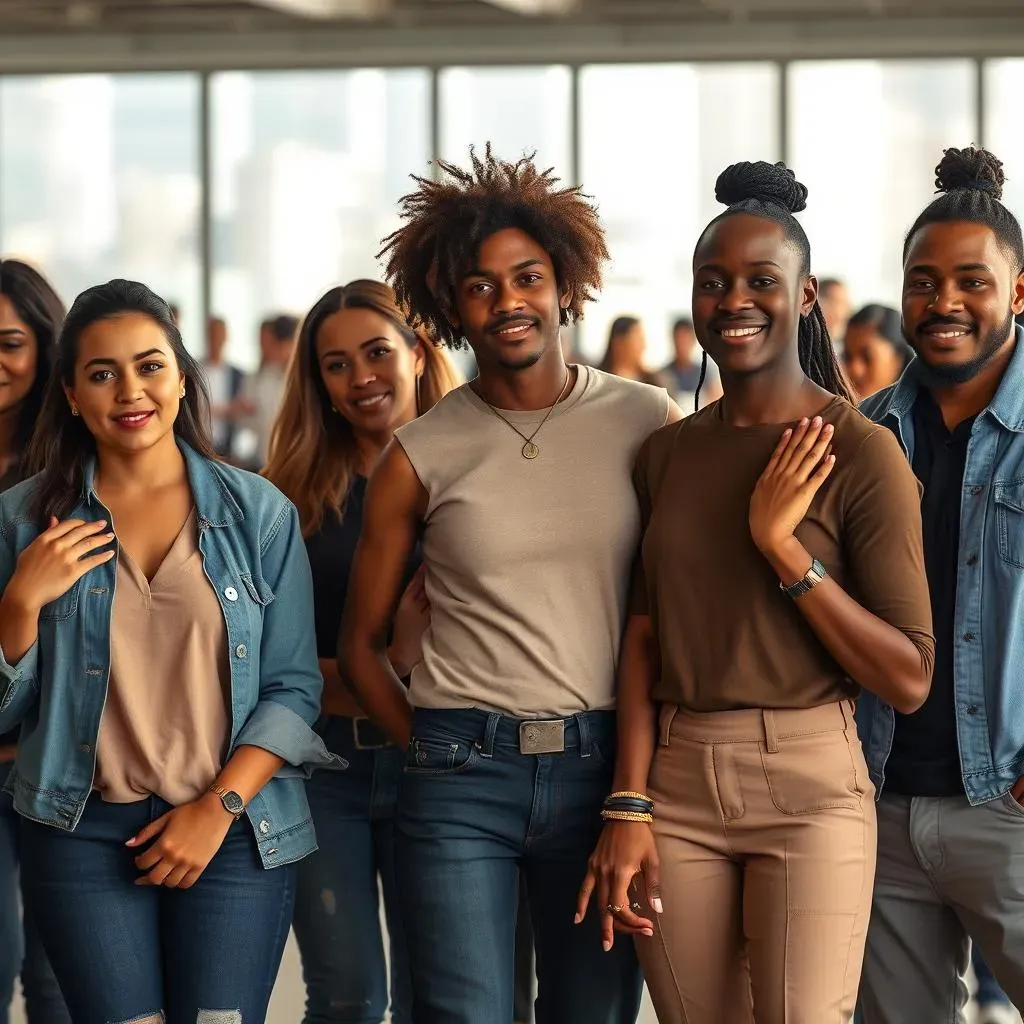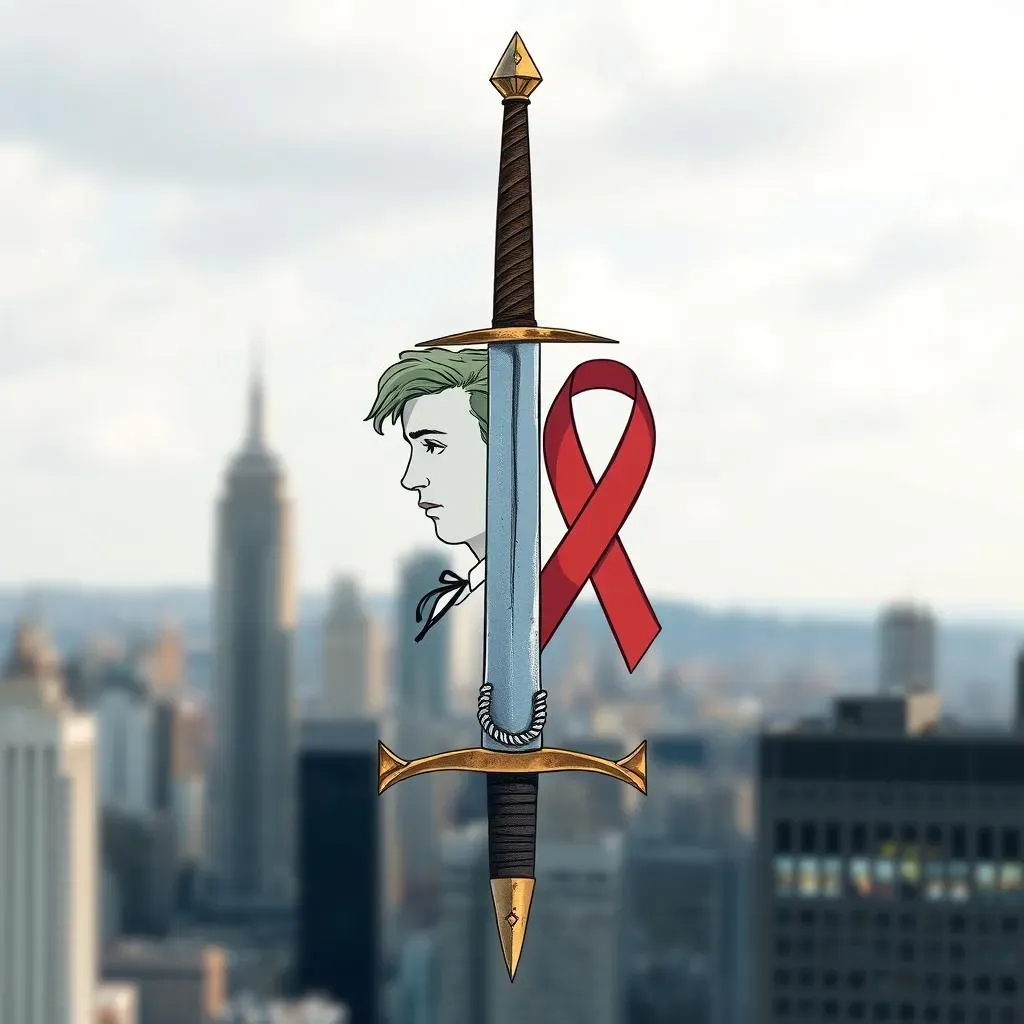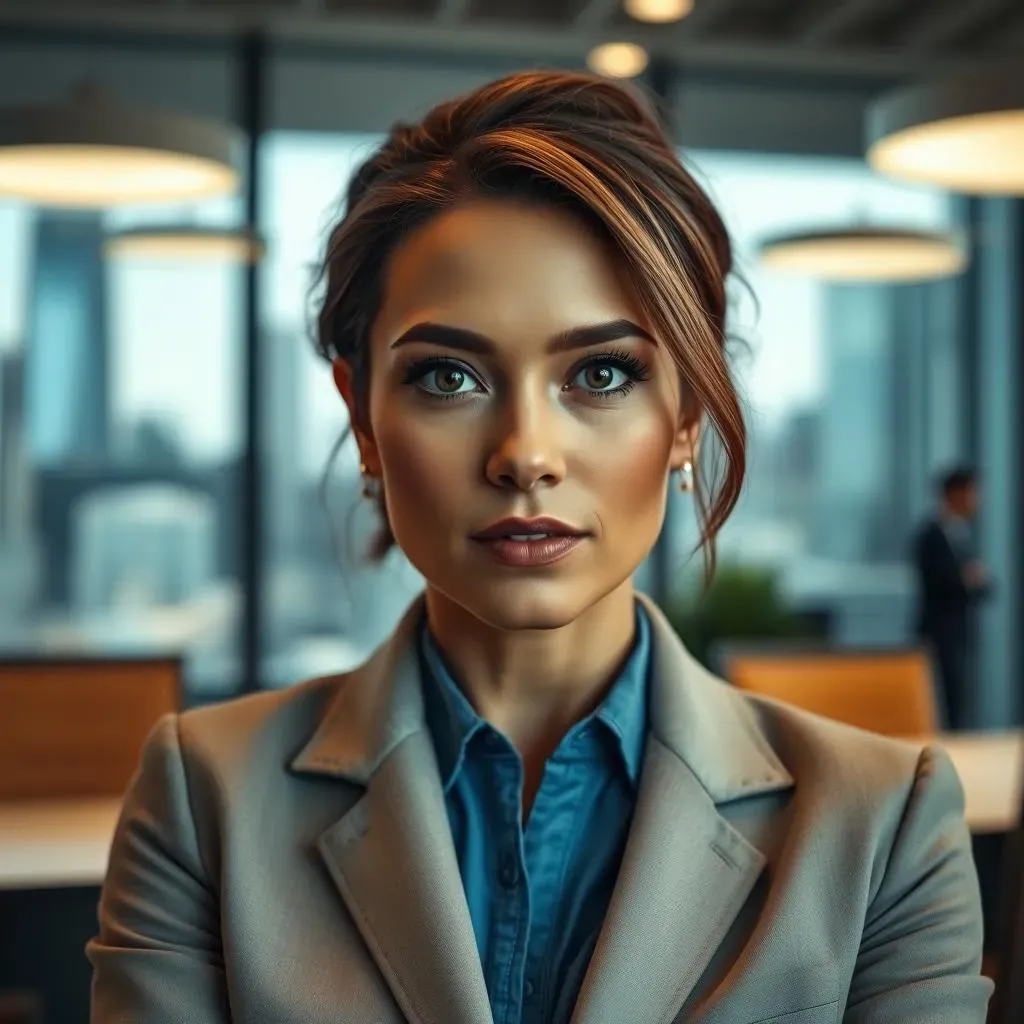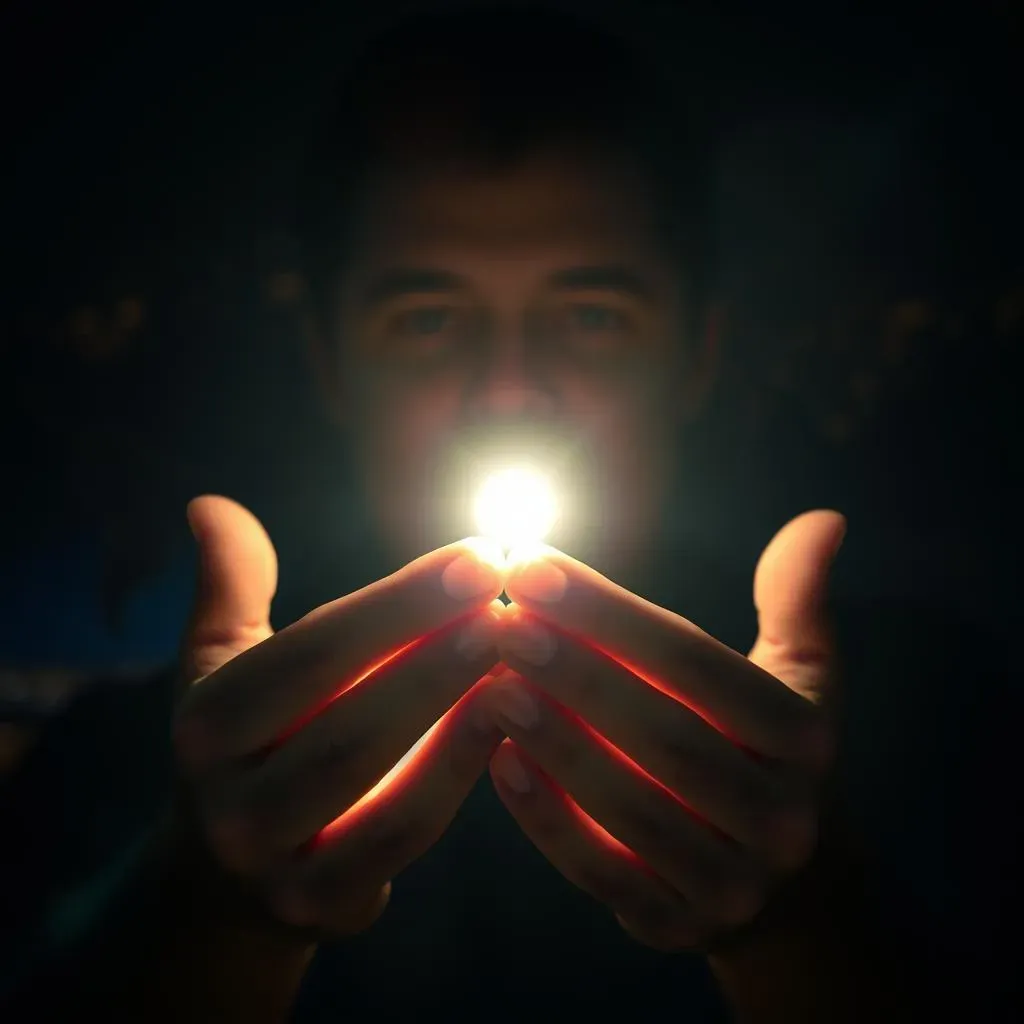Table of Contents
Ever seen a famous actor or singer speak out about something serious? It happens a lot, especially when it comes to big problems like human trafficking. These aren't just random shout-outs. When celebrities get involved in human trafficking awareness campaigns, it can shine a spotlight on an issue that often stays hidden in the shadows. This article isn't just about famous faces; it’s about what happens when they use their influence to fight for change. We'll explore why they get involved, how their campaigns can be both incredibly helpful and sometimes a little tricky, and most importantly, what real impact these efforts have. We'll also look at how you can be part of the solution, even if you're not a celebrity. So, let's get into the world of celebrity human trafficking awareness campaigns and see what it's all about.
Why Celebrities Join the Fight Against Human Trafficking

Why Celebrities Join the Fight Against Human Trafficking
Okay, so you're wondering why big stars suddenly care about human trafficking? It's not always as simple as just wanting to look good. For some, it's genuinely about using their platform for good. They have massive reach, millions of followers hanging on their every word, and that's a powerful tool. Imagine if your voice could reach that many people – wouldn't you want to use it for something important? Many celebrities feel a moral obligation, like they have a responsibility to speak up for those who can't. They've got the spotlight, so they figure, "why not shine it on a problem that needs attention?" It's also about personal connections sometimes. Maybe they've met a survivor, or heard a story that hit them hard, and that personal connection fuels their drive. Then there is the fact that doing good feels good. I mean, who wouldn't want to be seen as a hero? It's a mix of genuine care, responsibility, and, let's be honest, a little bit of good PR too.
The Power and Peril of Celebrity Human Trafficking Awareness Campaigns

The Power and Peril of Celebrity Human Trafficking Awareness Campaigns
The Double-Edged Sword
Okay, so celebrities jump in, that's great, right? Well, it's not always that simple. Their influence can be a total game-changer. When a big star talks about human trafficking, people pay attention who might never have otherwise. It's like they have this megaphone that can reach millions. They can raise tons of money for organizations fighting trafficking, and they can push for changes in laws and policies. But here’s the tricky part: sometimes the focus ends up more on the celebrity than on the actual issue. It can become a kind of "look at me, I’m doing good" situation, and that can distract from the real problem. It's like they’re trying to make it a fashion statement or a trend instead of a crisis that needs our attention.
Also, not every celebrity is an expert on human trafficking, right? Sometimes, they might accidentally spread misinformation or oversimplify things. It could even lead to some people thinking they know all about human trafficking just because they saw their favorite star post about it. It's like when your friend watches a single YouTube video and suddenly thinks they're a doctor. So, while celebrity involvement can be super powerful, it can also be risky if not done carefully. It needs to be about the issue, not about the fame.
Navigating the Complexities
Another thing to think about is how these campaigns are presented. Are they showing the real, raw stories of survivors? Or are they using overly dramatic or sensationalized images to grab attention? It’s a tough balance, because you want people to care, but you don’t want to exploit the suffering of others. It's also important to make sure the celebrity is actually committed to the cause, not just jumping on the bandwagon for a quick PR boost. We've all seen celebrities who suddenly become passionate about something, and then it’s never mentioned again. It’s like they have a new favorite flavor of the month. That lack of long-term commitment can make people cynical and distrustful of these kinds of campaigns. It's like when you promise your friend you'll help them with a project, and then you disappear. So, there needs to be real substance behind the star power.
Also, there's the issue of who's actually getting the help. Sometimes, the money raised goes to big organizations with lots of overhead, and it's not clear how much is reaching the people who need it. It’s like donating to a charity and not knowing if your money is going to help someone in need or pay for a fancy office. Transparency is key. We need to know that these efforts are making a real difference in the lives of trafficking victims, not just making celebrities look good.
Potential Power | Potential Peril |
|---|---|
Raises Awareness | Focus shifts to the celebrity |
Drives Donations | Spreads misinformation |
Advocates for Policy Change | Can be seen as insincere |
Reaches Wide Audiences | Sensationalizes survivor stories |
Inspires Action | Funds don't reach victims |
RealWorld Impact: How Celebrity Campaigns Have Helped

RealWorld Impact: How Celebrity Campaigns Have Helped
Raising Awareness and Sparking Conversations
Okay, let's talk about the good stuff. When celebrities use their platforms right, they can actually make a huge difference. Think about it – before a big star starts talking about human trafficking, it's often something people don't even think about. It's like it's happening in a hidden world, and suddenly, a celebrity turns on the lights. They bring the issue into the mainstream, making it a topic of conversation around dinner tables and on social media. This increased awareness is the first step toward change. It's like planting a seed – you need people to know there's a problem before they can start working to fix it. They also help remove the stigma, making it less of a taboo topic to discuss.
For example, when Angelina Jolie speaks about her work with the UN, advocating for refugees and against human trafficking, it really does make a difference. Her involvement puts pressure on governments and organizations to take these issues more seriously. It's not just talk; it's about showing that people with influence care, which can motivate others to do the same. It’s like seeing your favorite superhero fighting a villain – it inspires you to stand up for what's right. It also helps to normalize conversations around trafficking, making it less of a hidden crime. It’s like finally acknowledging the elephant in the room.
Funding and Legislative Changes
Beyond just talking, celebrity campaigns can also bring in serious cash. They often partner with organizations, helping to raise funds that go directly toward rescuing victims, providing support services, and creating programs to prevent trafficking in the first place. It's like having a fundraiser, but instead of a bake sale, you have a celebrity endorsement. These funds can be crucial in keeping these organizations running. Then, there's the power to push for policy changes. When celebrities speak out, they often have the ear of lawmakers, which can lead to stronger laws against trafficking and better protections for victims. It's like they are lobbying, but with a lot more star power.
For instance, you've seen how some celebrities have used their influence to support the passing of anti-trafficking legislation. It's like they're saying, "Hey, this is important, and we need to make real changes." They can bring together different groups of people who might not normally work together, which is really powerful. These changes can make a big difference in how trafficking cases are handled and how victims are supported. It’s not just about good intentions, but about creating real, lasting changes that protect vulnerable people. It's like building a safety net for those who need it most.
"Never doubt that a small group of thoughtful, committed citizens can change the world; indeed, it's the only thing that ever has." - Margaret Mead
Making a Difference: How You Can Support AntiHuman Trafficking Efforts

Making a Difference: How You Can Support AntiHuman Trafficking Efforts
Alright, so you're fired up about this, and you're wondering what you can do, right? You don't need to be a celebrity to make a difference. There are tons of ways regular people can help fight human trafficking. It's about starting where you are and using what you have. You can start by getting informed, learning about the different types of trafficking, who is most vulnerable, and what the signs are. It's like doing your homework – you can't fix a problem if you don't understand it. Knowledge is power, and it's the first step to becoming an advocate.
Next, you can support organizations that are actively working to combat trafficking. This could be through donations, volunteering your time, or even just sharing their content on social media. It's like giving a boost to the people who are in the trenches fighting this battle. Every little bit helps. You can also be an advocate in your own community by talking to your friends and family about human trafficking, raising awareness, and encouraging them to get involved too. It's about creating a ripple effect, where your actions inspire others to act. You can even push for change by contacting your local representatives, urging them to support anti-trafficking legislation. It's like using your voice to make sure your leaders hear you.
Action | How You Can Do It |
|---|---|
Get Informed | Research trafficking types, signs, and vulnerable populations. |
Support Organizations | Donate, volunteer, or share their content. |
Raise Awareness | Talk to friends, family, and share info on social media. |
Advocate for Change | Contact local representatives and support legislation. |
Another important thing is to be mindful of the products you buy. Some products are made by people who are forced to work in terrible conditions. It's like you're indirectly supporting trafficking. Look for fair trade or ethically sourced items. It's like choosing to buy from a farmer's market instead of a big factory. Also, be aware of what's happening in your own community. If you see something that doesn't look right, don't be afraid to report it. It's like being a watchful neighbor, keeping an eye out for those who might be in trouble. It's about taking the initiative and not being a bystander.
Finally, remember that fighting human trafficking is a marathon, not a sprint. There will be setbacks and challenges, but don't get discouraged. Every action you take, no matter how small, can make a difference. It's like planting a tree – you might not see the results right away, but over time, it will grow and thrive. It's about staying committed and working together to create a world where everyone is free. It's not just about ending trafficking, but about creating a world where it's unthinkable. It's about hope, resilience, and working together to create a better future.
"The world is a dangerous place to live; not because of the people who are evil, but because of the people who don't do anything about it." - Albert Einstein